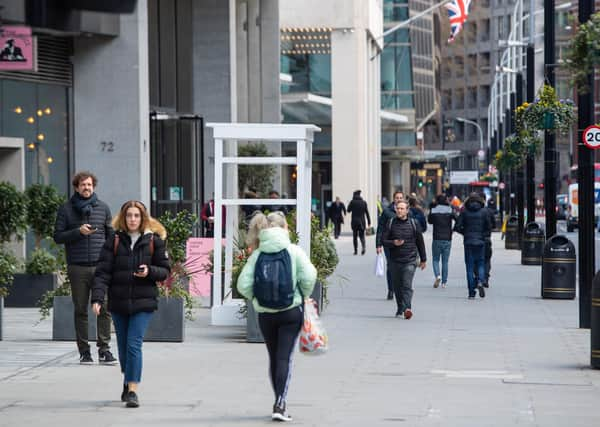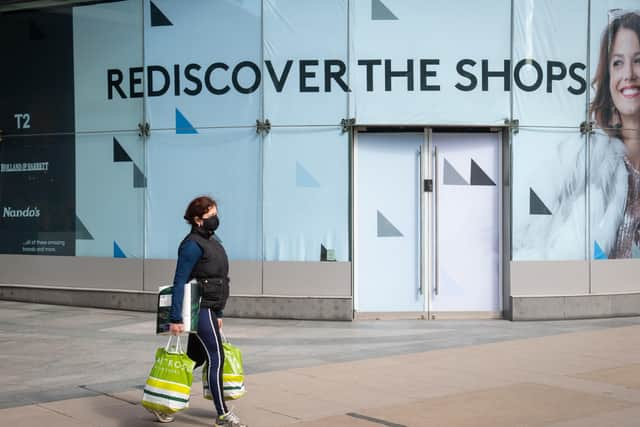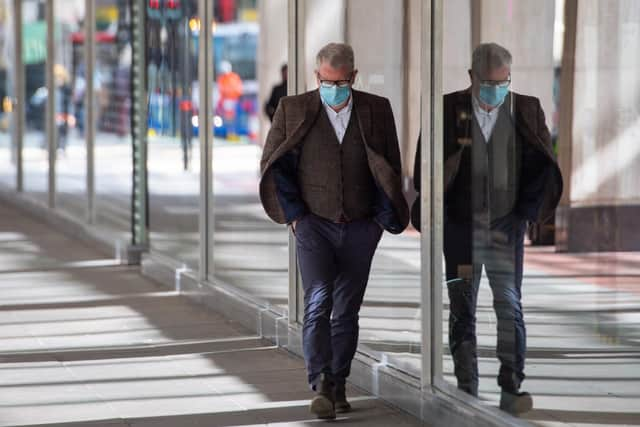Treatment of people who won’t get jab – Yorkshire Post Letters


From: John Rayner, North Ferriby.
IT is suggested that use of a ‘vaccine passport’ to regulate access to venues would be discriminatory – as if this is somehow something bad.
What do we mean by ‘discrimination? The ability to distinguish between two things having a difference in some characteristic is fundamental to the management of everyday life and survival – between safe and unsafe food, or stronger and weaker job applicants, for example.


Advertisement
Hide AdAdvertisement
Hide AdThe problem arises when discrimination is applied against people based (‘unfairly’) on a characteristic they cannot change, such as race or sex. The issue of discrimination based on religion is an interesting anomaly, since religious adherence has proved through history to be quite mutable.
Hence in the context of the Covid pandemic, we have the question as to whether an individual feeling discriminated against on the basis of non-vaccination is entirely unable to do anything about it and, if not, whether the neighbouring population is justified in seeking ways to keep its distance.
It is not a question of being unwilling to change the characteristic at point, but to be absolutely unable, which is the fundamental root of potential unfair discrimination.
From: Diane Grimoldby, Advanced nurse practitioner, Pontefract.


Advertisement
Hide AdAdvertisement
Hide AdPERHAPS Tom Richmond (The Yorkshire Post, April 3) ought to be enlightened as to how low morale is in General Practice, and how hard we are working.
1. We have had to make the practice safe for our staff and our patients.
2. We are seeing patients face-to-face, yes we are seeing fewer patients as we have to clean down the rooms and ourselves between patients.
3. We are contacting patients by phone as some can be sorted out over the phone which saves time. We also have to make sure the patient is safe to come into the surgery.
Advertisement
Hide AdAdvertisement
Hide Ad4. We are still doing home visits to our housebound and terminally-ill patients
5. We have worked with severely depleted staffing levels as our staff have caught Covid – and some of our staff also have had to work from home as they are too vulnerable to work from surgery.
We are on our knees and exhausted.
From: Pauline Beasley, Retford.
TOM Richmond’s column ‘Urgent treatment needed for our ailing GP Practices” (The Yorkshire Post, April 3) mirrors my own experience. My written complaint was met with a vindictive response – so no learning curve there. Where are our GPs? Not putting needles in arms apparently.
Importance of business skills
From: Michael Meadowcroft, Former Liberal MP, Leeds.
BUSINESS skills of all kinds will be more vital than ever as we seek to recover from the serious damage done to our economy by the pandemic (Mark Casci, The Yorkshire Post, April 6).
Advertisement
Hide AdAdvertisement
Hide AdOne detrimental trend in post-war politics has been the decline in the number of businessmen and women in politics able to speak from experience of the practical needs of industry.
Gone are the days of Sir Alfred Mond and William Mather, giants of the chemical and engineering industries who served time as MPs.
Given the low esteem, constant social media barrage and the constant surveillance of their lives, there is very little incentive to enter the rough and tumble of politics.
Most politicians are, like myself, individuals who have spent very little time in any directly profit-making role, but rather we have depended on others doing so in order to provide the cash for the work we do and the policies we promote. I have always respected those who make politics possible.
Advertisement
Hide AdAdvertisement
Hide AdI recall a posh meal many years ago in the Leeds Civic Hall. I was sat next to Raymond Ellis, a rich Labour councillor for Chapeltown. His Labour fellow councillors were teasing him and asking how he could be wealthy and also a Labour representative. Raymond said: “Well, someone has to pay for socialism!”
Independence risk for Scots
From: R W Foster, Harrogate.
I LOVE the Scottish people (The Yorkshire Post, April 7) and I have long thought that the biased, one-sided approach of their government – drumming up hatred of Boris Johnson, the Tories and Parliament – is not the approach of a balanced and wise leadership. The Scottish people should be given a fair view of the downside risk of independence before making such a momentous decision.
From: Geoffrey North, Shakespeare Road, Guiseley.
SIR Bernard Ingham presented a convincing case that Scotland would lose out if it left the UK. He could have added that about 60 per cent of Scotland’s trade is with the rest of the UK, more than the rest of the world combined. Scotland’s trade with the EU is less than a third of exports to the UK. Leaving the UK, together with the probable imposition of a hard border, could have a devastating consequence for jobs and prosperity in Scotland. Do the people of Scotland really want to commit economic suicide?
Comment Guidelines
National World encourages reader discussion on our stories. User feedback, insights and back-and-forth exchanges add a rich layer of context to reporting. Please review our Community Guidelines before commenting.